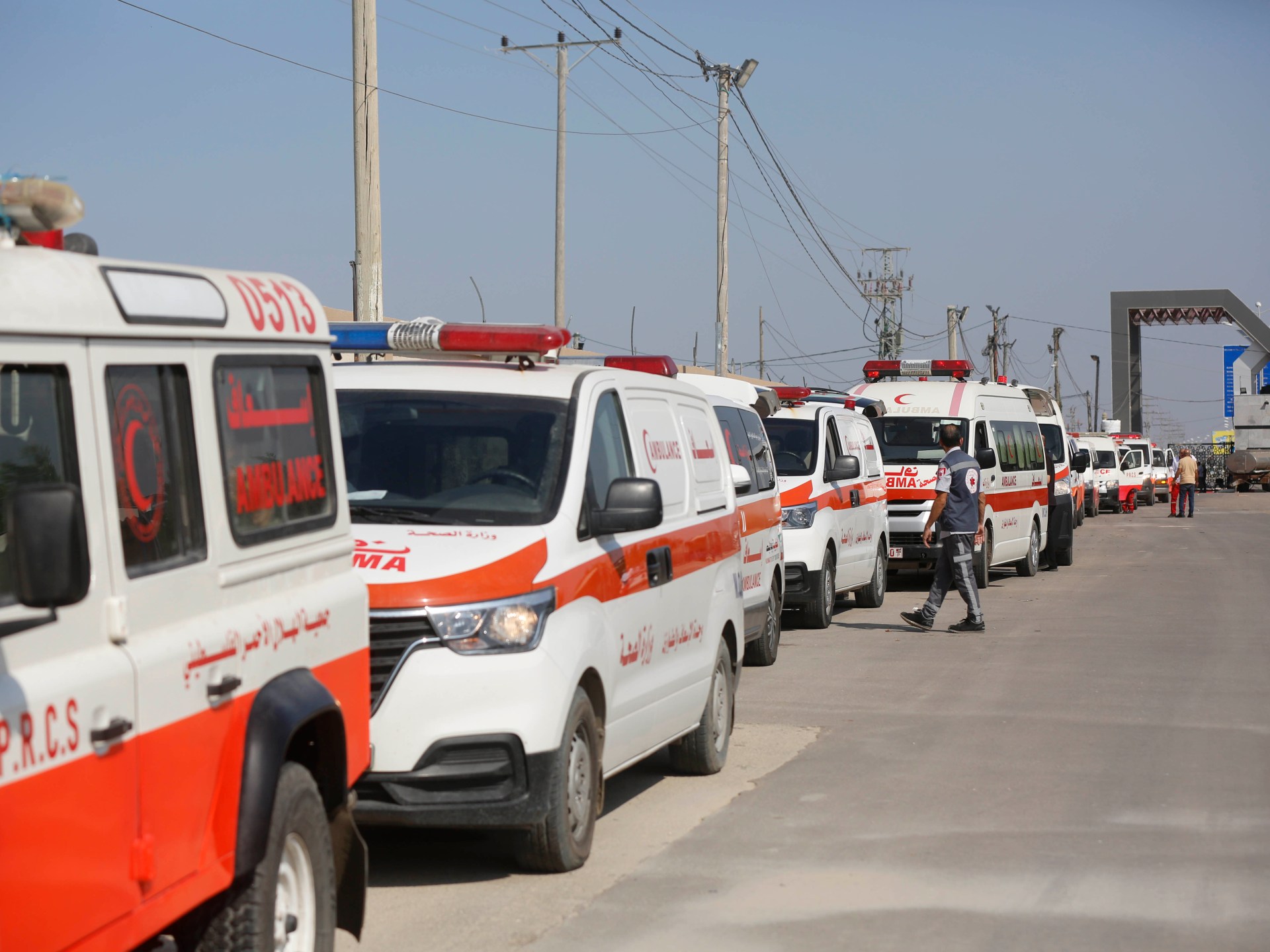
Aid groups say they are facing difficulties working as Israel resumes its bombardment of Palestinians in Gaza.
A limited number of aid trucks have managed to enter the besieged Gaza Strip via Egypt after being forced into a holding pattern for a year The week-long ceasefire ended and Israel began bombing the enclave again.
“Palestinian Red Crescent crews have now received relief trucks from our Egyptian Red Crescent partners via the Rafah border crossing,” PRCS confirmed in a post on X on Saturday.
The PRCS said it received 50 aid trucks carrying food, water, supplies, medical supplies and medicine through the Egyptian-controlled border crossing.
The relief trucks have not been able to enter since Friday The Israeli military resumed bombing Gaza targets killing hundreds of Palestinians.
📍The Palestinian Red Crescent teams received 50 aid trucks🚛through the #Rafah cross today. The trucks contain food, water, relief supplies, medical supplies and medicine.#Humanitarian aid #Gaza pic.twitter.com/iyOBf8dHwW
— PRCS (@PalestineRCS) December 2, 2023
As of 6:00 p.m. (1600 GMT) Friday, no aid convoys or fuel shipments had entered Gaza, and this was already the case with aid convoys ready to enter Gaza remained on the Egyptian side of the borderaccording to the United Nations.
Before the ceasefire came into effect eight days ago, fewer than 100 trucks were entering the Gaza Strip every day. During the ceasefire, around 200 trucks arrived every day.
That compares with the 500 aid trucks that drove into Gaza every day before the war began on October 7, according to the UN, which has said the current flow of aid is not meeting the needs of Gaza’s civilian population.
The main difficulty in getting the trucks into Gaza lies in an Israeli checkpoint that has been set up as part of a system since October 21 First aid supplies were permitted.
The system allows Israel to carefully inspect each individual truck to address alleged concerns that humanitarian aid could end up in the hands of Hamas.
It requires drivers to make a round trip of more than 80 km (50 miles) from Rafah to an Egypt-Israel border crossing and back has led to significant bottlenecks. There, the trucks are thoroughly scanned and searched for anything Israel might deem unsuitable for entry into Gaza – including small kitchen knives.
Hisham Mhanna of the International Committee of the Red Cross told Al Jazeera on Saturday that the The fighting in Gaza continues has made the work of aid organizations more difficult.
“There should be a complete ceasefire so that humanitarian assistance can help alleviate, even slightly, the suffering of civilians,” he said, adding that political efforts were needed to ensure that there was no collapse in humanitarian aid sector in Gaza can be prevented.
The UN has lobbied Israel to open the Karem Abu Salem (Kerem Shalom) border crossing near Rafah, which handled large volumes of goods before the war, but Israel refused.
“Humanitarian operations in Gaza have largely come to a standstill, with the exception of services in shelters and limited flour distribution in areas south of Wadi Gaza,” the UN Office for the Coordination of Humanitarian Affairs (OCHA) said in its latest report on Saturday.
“The evacuation of wounded and dual nationals to Egypt and the return of Gazans stranded in Egypt were also halted.”
On Saturday, the Health Ministry announced that the number of Palestinians killed by Israeli strikes in Gaza since the war began on October 7 had risen to 15,207, most of them women and children.
More than 40,000 people were injured in the attacks, it said, and large numbers of them would die every day because there were no treatment options in Gaza hospitals.






Recent Comments